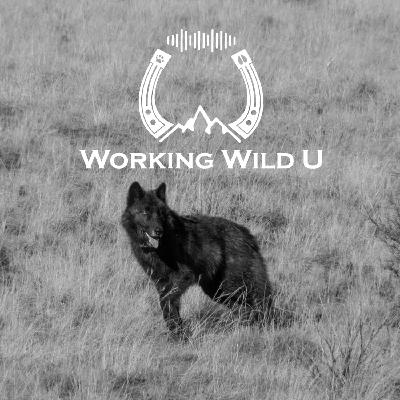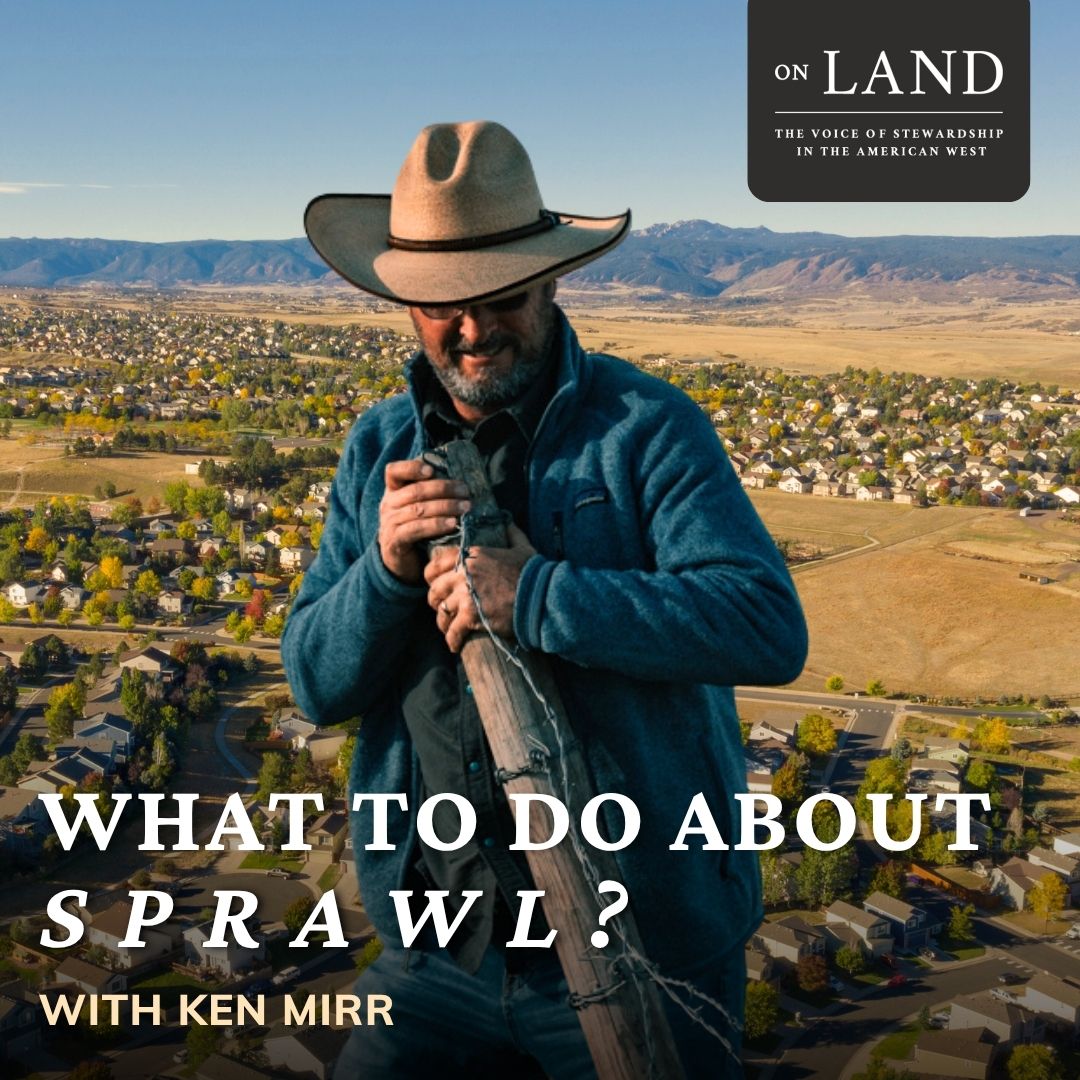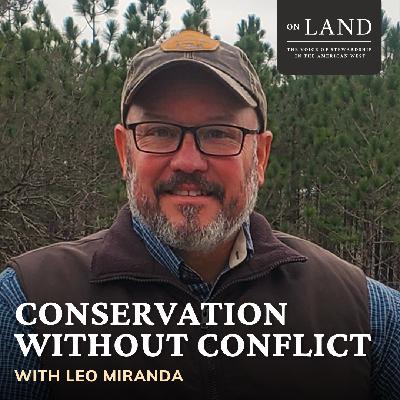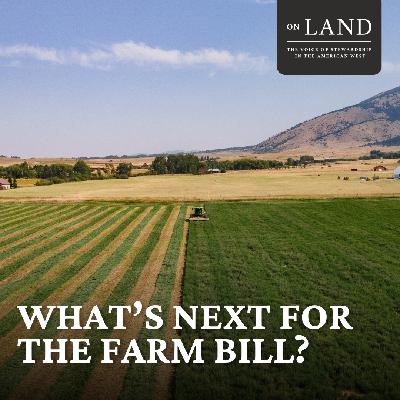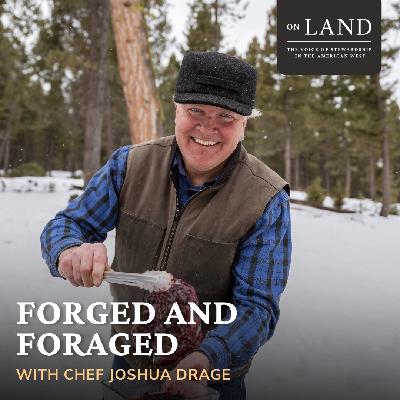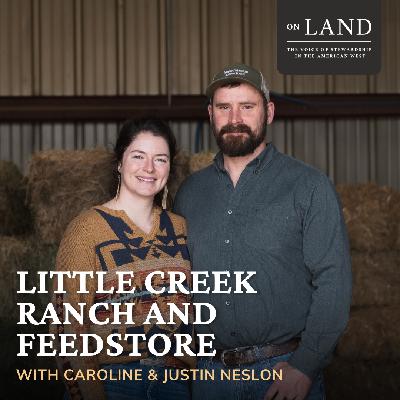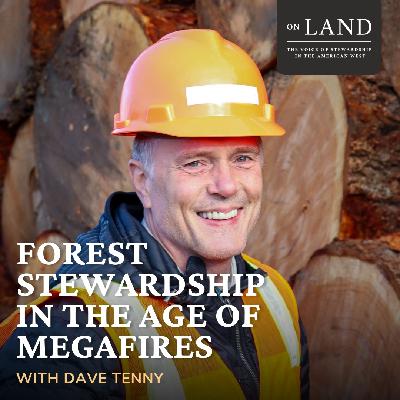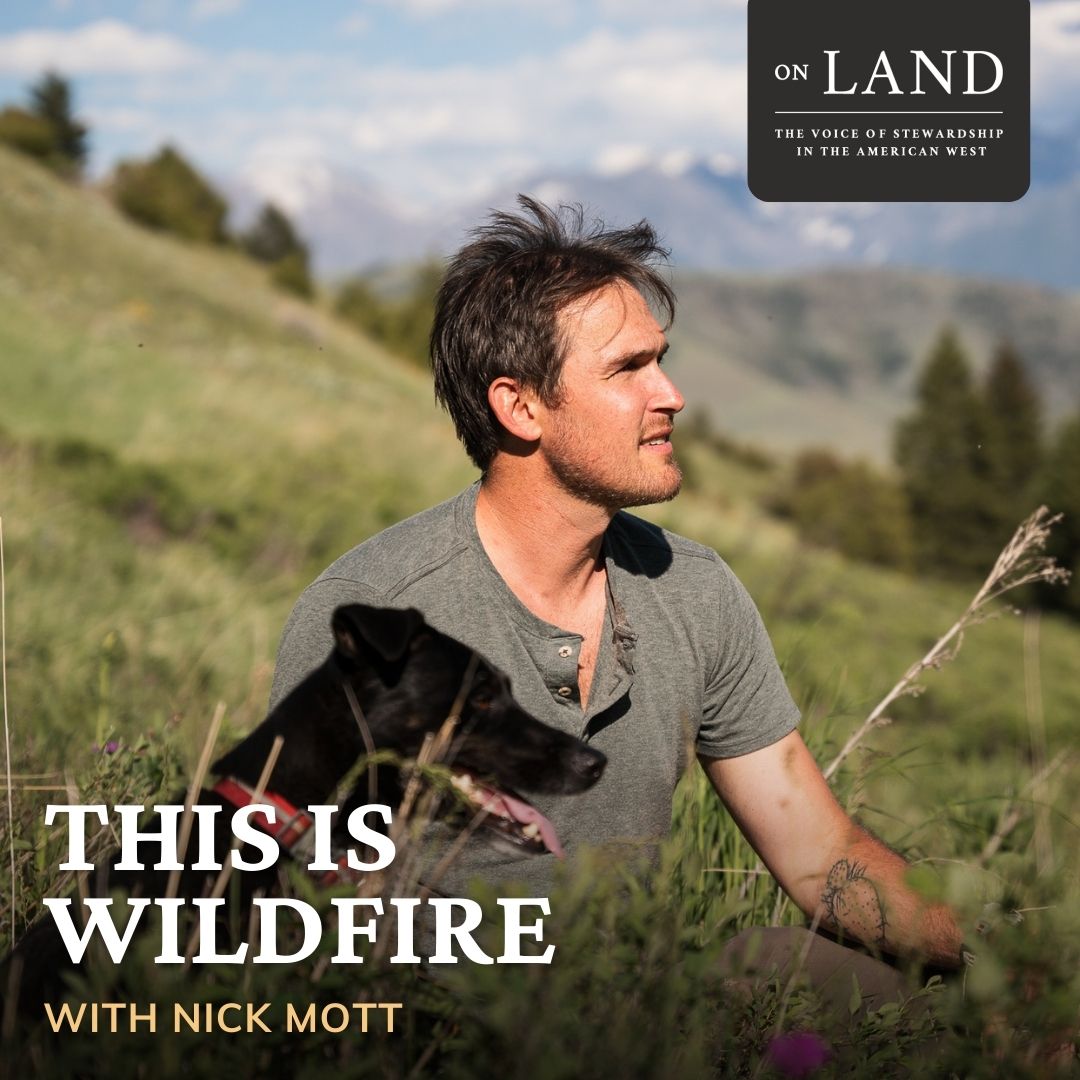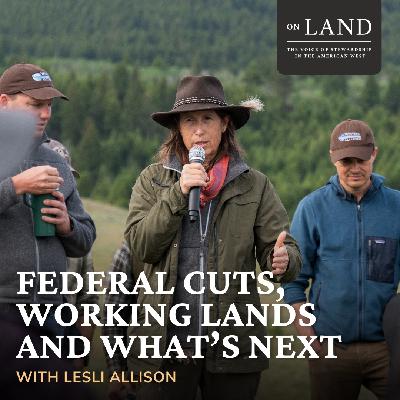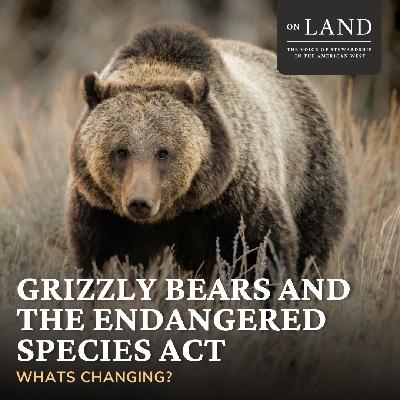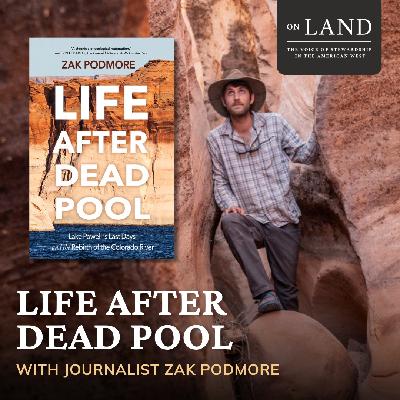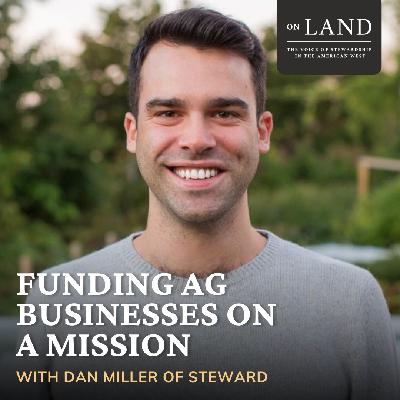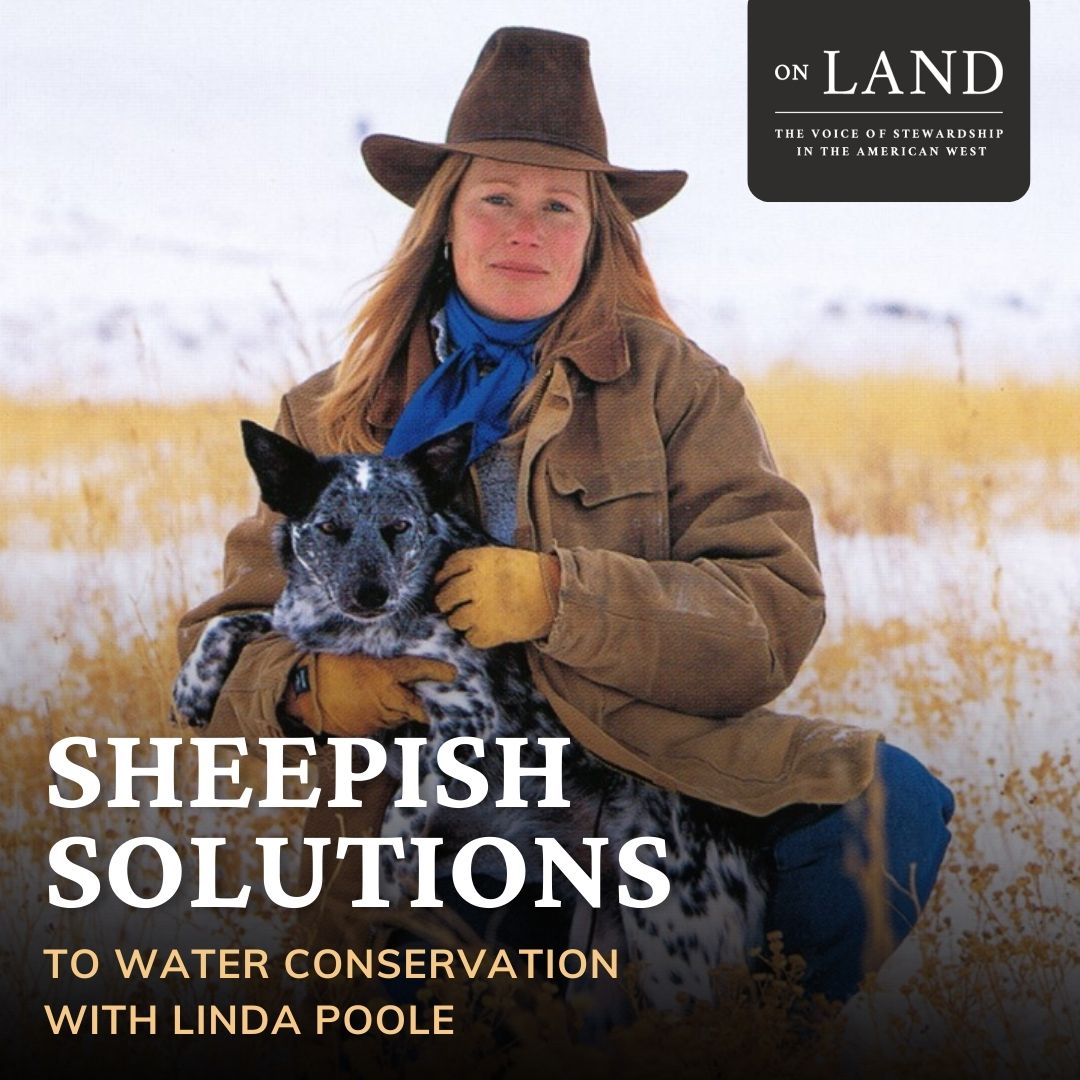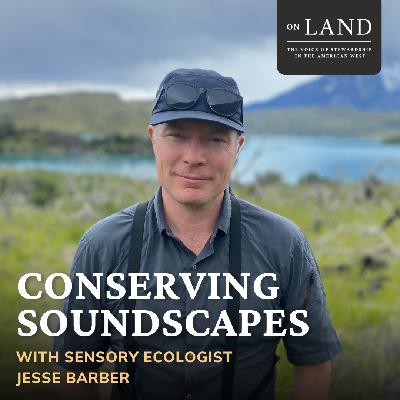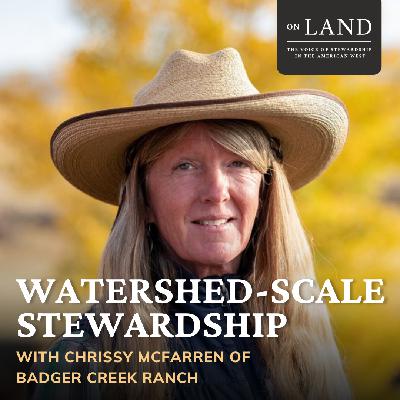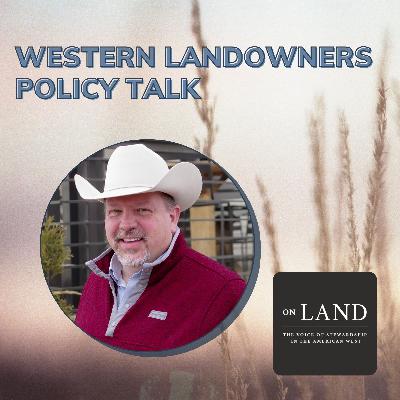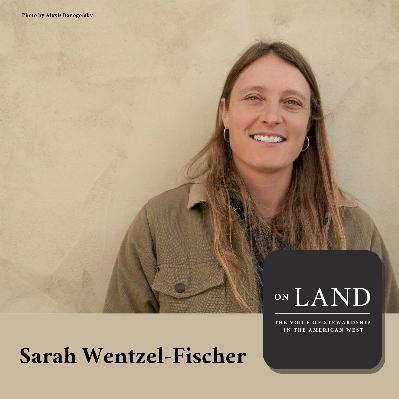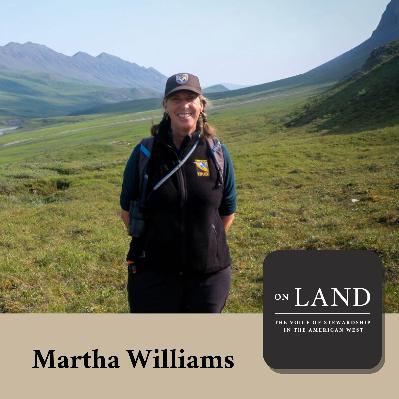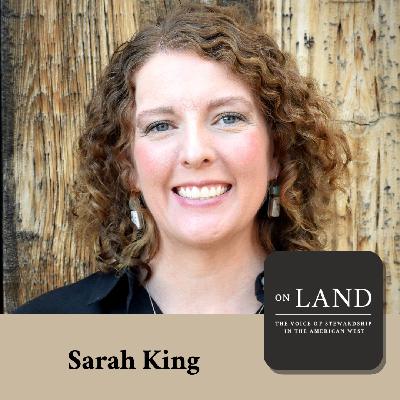Discover On Land
On Land

On Land
Author: Western Landowners Alliance
Subscribed: 7Played: 113Subscribe
Share
© Western Landowners Alliance, all rights reserved
Description
Welcome to the On Land podcast. On this show we'll be bringing you thoughtful conversations with the people who are living and working on the land and shaping the future of stewardship in the American West.
39 Episodes
Reverse
California's recent decision to remove four members of a wolf pack near Lake Tahoe sparked national attention - but the story behind it is much bigger. Today on the On Land feed, we're sharing a special episode from our sister show, Working Wild University, which WLA produces with wildlife management specialist and prof. Jared Beaver at Montana State University Extension. In this episode, Wildlife Management professor at UC Berkeley, Dr. Arthur Middleton, joins us to dig into his recent New York Times op-ed and explore why America's predator recovery has outpaced our ability to support the people living in these landscape – and what we can do about it. Show notes: https://onland.westernlandowners.org/2025/podcast/california-wolves-87-dead-cattle-and-the-nyt-op-ed-everyones-sharing/ This episode was hosted by Jared Beaver and produced by Zach Altman, with support from Avery Shawler and Louis Wertz.
Only 7% of philanthropic dollars goes toward rural America, and our guest today is working to change that. Today our CEO Lesli Allison sits down with Erin Borla, executive director of the Roundhouse Foundation in Sisters, Oregon. Erin's helping reimagine what philanthropy looks like in rural and tribal communities, through both the Foundation's grantmaking and their podcast Funding Rural. Show notes: https://onland.westernlandowners.org/2025/podcast/inside-the-movement-to-fund-rural-america-with-erin-borla/
The American West is changing fast, and one of the biggest forces shaping that change is development. Sprawl - those 35-acre subdivisions and ranchettes you see spreading across the landscape - can mean paradise for some, and the unraveling of communities, wildlife habitat and productive landscapes for others. Today we're talking about what's driving that growth, what it means for landowners and rural economies and what kinds of solutions might help us strike a balance between private property rights, conservation and community needs. On the show today, our CEO Lesli Allison sits down with Ken Mirr, founder of Mirr Ranch Group and longtime land broker who has worked at the intersection of ranching, conservation and real estate for decades. Show notes: https://onland.link/podcast
The Endangered Species Act has helped save iconic species from extinction - but it's also created real tension for the private landowners who manage the majority of wildlife habitat in the U.S. In this episode, WLA CEO Lesli Allison sits down with Leo Miranda, executive director of Conservation Without Conflict and former Southeast Regional Director for the U.S. Fish and Wildlife Service. From his early days as a field biologist in Puerto Rico to leading one of the most innovative regional conservation efforts in the country, and as a farmer in Georgia, Leo brings a unique perspective on what it takes to shift from conflict to collaboration. Together, they explore how trust, transparency, and voluntary partnerships have produced conservation successes in the Southeast - and what it will take to scale those successes across the West. Find show notes and more: https://onland.link/podcast Like what you hear? Make a gift today: https://westernlandowners.org/support/
The Farm Bill. A piece of legislation that quietly shapes much of life in this country - especially for those of us in rural America. The Farm Bill influences everything from food access to conservation, crop insurance to rural infrastructure. And yet, for how far-reaching it is, most Americans know very little about what's actually in it - or what's at stake when it comes up for renewal. To help unpack the history, the politics, and the uncertain path ahead, Lesli Allison, our CEO here at Western Landowners Alliance, speaks with two former high-ranking staffers who served in the Senate Agriculture Committee, Jonathan Coppess, former chief counsel under former senator and chairwoman Debbie Stabenow, a Democrat from Michigan, and Joel Leftwich, a former staff director under former senator and chairman Pat Roberts, a Republican from Kansas. Find the show notes here: https://onland.link/podcast
For Chef Joshua Drage, fire is more than a cooking method - it is a unifying ingredient in his culinary creations. Drage's passion lies in crafting dishes that pay homage to the American West; emphasizing the connection between fire and food. Drage collaborates with local producers to source the freshest ingredients skillfully blending bold flavors while championing healthy eating. Today's episode of On Land is a literal fireside chat with Chef Joshua Drage. Join WLA's Christina Wenikowski and Zach Altman on a culinary journey to Chef Drage's cabin in the forested hills near Phillipsburg, Montana. Show notes and recipes: https://onland.westernlandowners.org/2025/eating-on-land/fire-cooking-with-chef-joshua-drage/ Topics discussed: Food foraging, cast iron cooking, forest management, wildland urban interface, elk steak, morels, huckleberries, juniper, wildfire
Today we're chatting with Caroline and Justin Nelson, the powerhouse ranching couple behind Little Creek Feed in Townsend, Montana, and the owners of Little Creek Lamb & Beef, a direct-to-consumer meat company that prioritizes care for the land, the animals, and the people sustained by both. We talk about what it was like to start a business while expecting their first child, why they're so committed to quality local products and top-notch customer service, the decline of community gathering spaces in rural areas, the origins and growth of their meat business, and so much more. Find more in the show notes: https://onland.westernlandowners.org/2025/podcast/little-creek-feed/
The future of forests, and the communities and wildlife that depend on them, is at a crossroads. In this episode of On Land, Western Landowners Alliance CEO Lesli Allison sits down with Dave Tenny, founding president and CEO of the National Alliance of Forest Owners, for a timely, wide-ranging conversation. They dig into sweeping new federal directives aimed at expanding domestic timber production, what it really takes to reduce wildfire risk, and how private working forests are becoming critical players in wildlife conservation and the carbon economy. Along the way, they peel back the curtain on the modern timber industry: how it's changed, the stewardship ethic driving today's forestry leaders, and why sustainable forest management may hold keys to healthier lands, watersheds, and communities across the West. If you care about the future of forests, rural economies, or conservation, this is a conversation you won't want to miss. Find the show notes here.
The American West is burning. We need to adapt. But what does it really mean to live with fire? Today's guest has spent years trying to answer that question. Nick Mott is an award-winning journalist, podcast producer (Threshold, MTPR's The Wide Open, Fireline), and now author of the book This is Wildfire: How to Protect Yourself, Your Home, and Your Community in the Age of Heat, which he co-authored with Justin Angle, host of A New Angle and a professor at Montana State University's College of Business. Nick joins WLA's Zach Altman for a conversation about fire - where we've been, how we got here and what we can do now. They discuss forest management and insurance markets, prescribed burns and Indigenous fire knowledge, and how community might be the most powerful firefighting tool we've got. Find the show notes here.
Today we're bringing you a timely conversation with Lesli Allison, CEO of Western Landowners Alliance. With major shifts happening in federal policy—funding freezes, staffing cuts, and growing uncertainty—Lesli breaks down what these changes mean for working lands and the people who steward them. We'll talk about the challenges landowners are facing, the opportunities to shape the future, and why landowner leadership is needed now more than ever. Learn about WLA's policy work, share your thoughts and contact your reps here.
UPDATE: The U.S. Fish and Wildlife Service has extended the public comment period on proposed changes to the grizzly bear's Endangered Species Act listing. The new deadline is May 16. Today we're sharing an episode from Working Wild University, our award-winning documentary podcast about the people and wildlife of the American West. Western Landowners Alliance produces this show in partnership with Dr. Jared Beaver, a wildlife extension specialist at Montana State University. Be sure to check out Working Wild U wherever you listen to podcasts. The U.S. Fish and Wildlife Service is proposing changes to the grizzly bear's listing under the Endangered Species Act, and a public comment period is open until March 17th. But what exactly would this new rule mean for grizzly bear management, landowners, and the future of the species? In this episode, Jared and Zach sit down with Shaleas Harrison, Wyoming Resources Coordinator with Western Landowners Alliance, to break down the proposed rule, the long history of grizzly bear listing and delisting efforts, and what the proposed changes could mean for people living and working in grizzly country. Learn more about the proposed rule and submit a public comment. Full show notes here.
Today we dive into an illuminating conversation between Morgan Wagoner, Western Landowners Alliance's Western Water Program Director, and Zak Podmore, author of Life After Deadpool: Lake Powell's Last Days and the Rebirth of the Colorado River. Together, they explore topics like the Colorado River's massive silt deposits, mud volcanoes and ever-resilient native species, and the urgent need to reimagine western water management. This discussion comes at a pivotal moment, as states in the upper and lower Colorado River basins remain deeply divided on proposals to reduce water usage before the current rules expire in 2026. Despite the mounting challenges of climate change and uncertain hydrology, Podmores's new book offers a hopeful perspective, challenging the narrative of insurmountable water issues in the West and inspiring a vision of a future where the Colorado River flows freely once again. Show notes: https://onland.link/podcast
Today we sit down with Dan Miller, the founder and CEO of Steward, a regenerative agriculture finance firm. Dan founded Steward to combine his background in finance, real estate, and technology with his passion for agriculture, which stems from his maternal family who have been farming on the eastern shore of Maryland since the 1880s. Find the show notes here: https://onland.link/podcast
Today we sit down with Linda Poole, a rancher and working lands director at Western Landowners Alliance. Linda and her border collies and livestock guardian dogs care for colored finewool sheep, laying hens and sometimes cattle on a prairie homestead south of Malta, Montana. In 2023 Linda was awarded a Field Work Project grant from the LOR Foundation, which allowed her to experiment with different ways to use waste wool to combat water scarcity and improve soil health on her ranch. Let's dive in to hear what she learned from these experiments. Find more in the show notes.
How does human-related sound impact wildlife around us? From trails to roads to cities, this question propels Dr. Jesse Barber, a leader in the emerging field of sensory ecology. Jesse Barber is a professor of biological sciences at Boise State University. He was recently appointed as the chief conservation curator and chief conservation scientist at the American Museum of Natural History in New York. In today's episode, Barber joins Lesli Allison, CEO of Western Landowners Alliance, for a fascinating conversation about the field of sensory ecology, the role of private lands in sustaining a teaming realm of life largely invisible to humans, and its implications for land management and public policy. Explore links and more in our show notes.
In this episode of the On Land Podcast, we sit down with Chrissy McFarren, the owner of Badger Creek Ranch in Cañon City, Colorado. Chrissy shares her journey from a first-generation rancher, originally from California, to becoming a dedicated land steward in the American West. We explore the challenges and triumphs of managing a 6,500-acre ranch, where Chrissy and her team balance the demands of producing food with the critical work of land conservation, including her innovative strategies she employs to restore and preserve the Badger Creek watershed, including the use of virtual fencing and prescribed grazing techniques. Find more details in the show notes at onland.westernlandowners.org.
The first Western Landowners Policy Talk, a special monthly edition of the On Land Podcast, hosted by Louis Wertz of the Western Landowners Alliance, featured Jason Fearneyhough, chief policy officer with WLA, and WLA CEO Lesli Allison. Jason joined WLA as chief policy officer in February 2024, after stints as the deputy commissioner of agriculture for the state of Texas and director of the Wyoming Department of Agriculture. The discussion started with Jason sharing his vision for WLA's policy program and strategies for engaging within the current political and environmental challenges, such as recent Supreme Court decisions, national elections, and natural resource challenges. Lesli and Jason went on to share thoughts on federal farm bill modifications, drought and water policy, endangered species like pollinators, wolves and grizzly bears, and various state-level initiatives like New Mexico's Land of Enchantment Legacy Fund. The conversation also highlighted ongoing work to support ranch viability, succession planning, and public-private partnerships for conservation, alongside dealing with increased recreational impacts, forest management, and energy development. Complete show notes are available at onland.westernlandowners.org.
Sarah Wentzel-Fischer is a farmer, a writer, a connector, an advocate. Officially, she wears several hats. She is the Executive Director of the Quivira Coalition, an organization focused on building soil, biodiversity, and resilience on western working landscapes. Sarah raises pigs and makes compost with her partner on Polk's Folly Farm in northern New Mexico. Farmers in New Mexico elected Sarah to represent them on the board of the Rocky Mountain Farmers Union. We talk a little bit about what that means for Sarah's involvement in farm bill negotiations and other advocacy work related to that role in our conversation. But most of our conversation focused on the upcoming Regenerate Conference. Quivira organizes the annual event together with American Grassfed and Holistic Management International. This year, it's taking place November 1st to 3rd in Santa Fe. Western Landowners Alliance is a sponsor of the event and the online podcast will be there. Recording content and sharing stories in a planned podcaster's corner. Sarah and I talked about the theme of this year's event and some of the highlights, for both of us, on the agenda. And, the first day of the conference this year is completely free to attend. See complete show notes, including links to references from the show, here: onland.westernlandowners.org/podcast/.
Martha Williams is the director of the United State Fish and Wildlife Service, the agency responsible for implementing the Endangered Species Act (along with NOAA's fisheries division). She grew up on a farm in Maryland and studied law at the University of Montana. From 1988 to 2011, she served as legal counsel for the Montana Department of Fish, Wildlife and Parks. After a stint as Deputy Solicitor Parks and Wildlife in the Department of the Interior, she was appointed director of the Montana Department of Fish, Wildlife and Parks from 2017 to 2020. She is an avid outdoorswoman, hunter and angler. She spoke with Lesli Allison, CEO of Western Landowners Alliance, in August 2023 in the living room of Granger Ranches HQ in the Madison Valley of Montana. Their conversation took place after meeting with landowners and touring the ranch's remarkable stream restoration project. Complete show notes and a transcript of this episode are available at onland.westernlandowners.org/podcast/
Sarah King and her husband manage the King's Anvil Ranch in the Altar Valley, near Tucson, Arizona. Sarah is also the executive director of the Altar Valley Conservation Alliance. AVCA is a watershed based collaborative conservation organization founded in 1995. They use a strongly collaborative, science-based, community driven approach to conserve and sustain both the community and natural resources of the Altar Valley for future generations. Water is a critical issue for landowners south of Tucson. Sarah and the other members of AVCA are working on some interesting projects to manage water and enhance their watershed. WLA's chief programs officer, Hallie Mahowald, dove into this tricky topic with Sarah in today's episode. Full show notes, including a complete transcript, topics discussed, and links to references from the conversation are at onland.westernlandowners.org/podcast/.


